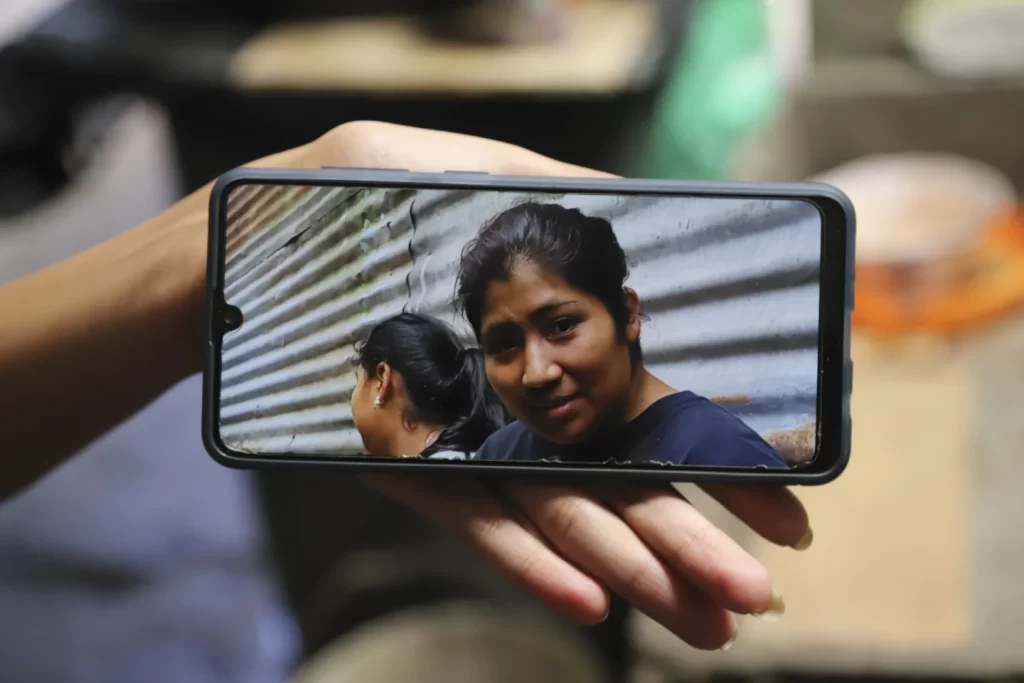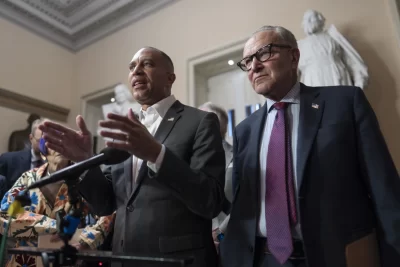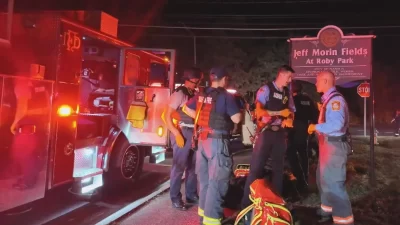
SANTA ANA, El Salvador — Tears welled in Alex’s eyes and he pressed his head into his hands as he thought about more than a year of birthdays and holidays without his mother, who was swept up by El Salvador’s police as she walked to work in a clothing factory.
“I feel very alone,” the 10-year-old said last month as he sat next to his 8-year-old brother and their grandmother. “I’m scared, feeling like they could come and they could take away someone else in my family.”
Forty thousand children have seen one parent or both detained in President Nayib Bukele’s nearly two-year war on El Salvador’s gangs, according to the national social services agency. The records were shared with The Associated Press by an official with the National Council on Children and Adolescents, who insisted on anonymity due to fear of government reprisal against those violating its tight control of information. The official said many more children have jailed parents but aren’t in the records.
By arresting more than 1% of his country’s population, Bukele, who appears headed to a second five-year term, is trying to break the chain of violence that has ravaged El Salvador for decades. But many worry that debilitating poverty, long-term trauma and government failures to protect their children could instead fuel a future wave of gang warfare.
“Kids aren’t spared when their dad, brother or mom is detained, they carry this trauma with them,” Nancy Fajardo, a lawyer and aid provider working with 150 such families. “They feel as if the president has robbed them of their family … It could push the kids to later join a gang as a form of vengeance for everything they’re suffering.”
Single mother Juana Guadalupe Recinos Ventura raised her boys in a small concrete house in an area coated by Barrio 18 gang graffiti. The family was never rich, but they were able to scrape by.
When she was detained outside their home in June 2022 on vague charges of “illegal gathering”, the boy’s grandmother, María Concepción Ventura, was left struggling to feed Alex and his brother and pay the bills without her daughter’s salary. The $75 packages of food and clothes the family sends once a month dealt the family another financial blow at a time that poverty has soared in El Salvador.
And that’s made the kids even more vulnerable in the long term.
“They would cry and cry, and still cry when they remember her,” Ventura said. “They’d just ask me, ‘When is mom coming back? When is my mom coming back?’ And you just have to tell them you don’t know when the government will let her go.”The Associated Press spoke to Alex after being told he wanted to speak about his mother, and with consent of his grandmother Ventura.
Alex’s home in the western city of Santa Ana is like much of the Central American nation: Two gangs once divided its territory.
El Salvador’s Mara Salvatrucha and Barrio 18 gangs originated from marginalized migrant communities in Los Angeles in the 1980s, made up in part of vulnerable unaccompanied minors fleeing Central America’s military conflicts. Once deported from the United States, the gangs began to prey upon youth in precarious situations in their own communities in El Salvador, eventually driving new waves of emigration as families fled their terror.
In his effort to eradicate the gangs, Bukele has detained over 76,000 Salvadorans, many with little evidence or access to due process. Families pass months without any news of their imprisoned loved ones. Human rights groups have documented widespread human rights abuses.




